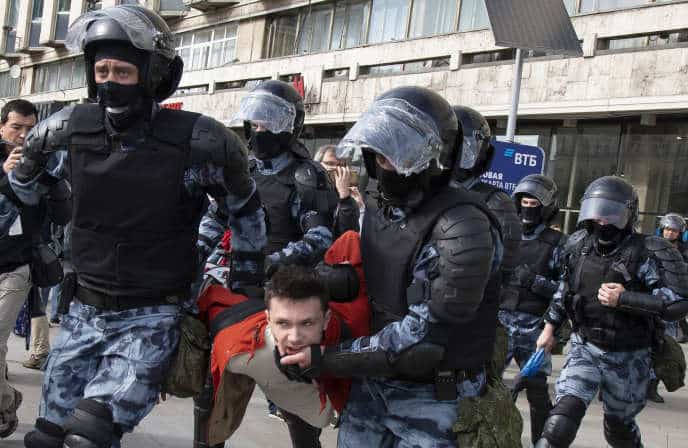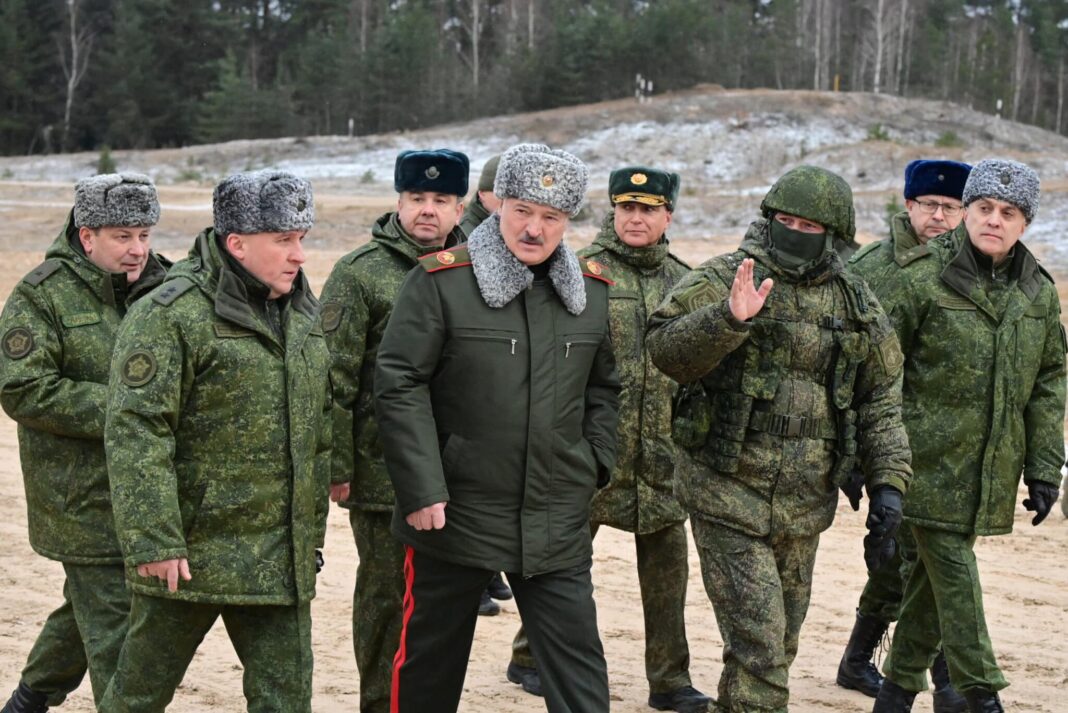Following the fraudulent re-election of Belarusian President Alexander Lukashenko in 2020, massive and popular demonstrations brought hundreds of thousands of Belarusians to the streets to protest against this new denial of democracy. Supported by Russia, which will send soldiers, security forces and propagandists there, these demonstrations will be very harshly repressed, causing at least 4 deaths, 4000 injuries and more than 30.000 arrests. The Belarusian opposition is either arrested or forced into exile, and the regime is considerably toughening up repression and arrests in the country, even for isolated and minor acts, such as wearing the traditional colors of the Belarusian flag. Since then, President Lukashenko has continued to give pledges to his Russian ally and protector, in particular by increasing his trips to Moscow.
Thus, Belarus served as the starting base for the Russian forces for one of the 3 major offensives at the start of the military special operation in February 2022, in this case the assault on the Hostomel aerodrome followed by that on the Ukrainian capital. In addition, many of the ballistic missiles fired at the start of the conflict were fired from Belarusian territory. However, despite having moved troops to the border of Ukraine and Poland, Minsk never officially entered the conflict, and no Belarusian troops have been deployed in Ukraine since the start of the conflict. However, President Lukashenko has repeatedly used warlike rhetoric, most often to justify even more ferocious repression in the country, and to fight against supposed support for Westerners. Unlike Vladimir Putin, Alexander Lukashenko is indeed aware that he does not have popular support, and that today his regime is only holding on by fear inspired by repression, and by the support of his Russian ally. .

These two aspects are, however, in a way, contradictory. Indeed, to meet Moscow's expectations and thus guarantee the support of Putin and his army, Lukashenko is called upon to weigh more heavily in the balance of power that is being established today between Europe and Russia. However, a mobilization is to be excluded for Minsk, an intervention in Ukraine even less, the risks being then very important that a popular uprising comes to take everything, and with it Lukashenko. It was perhaps in an attempt to resolve this difficult equation that the President of Belarus announced today his intention to create a new defensive force of the territorial defense type, 45.000 men strong, armed and in charge of protecting Belarusian cities and territory if it were to be attacked. Remember that the country's armed forces do not exceed 50.000 men, that they are above all made up of conscripts, and that they are notoriously ill-equipped and poorly trained. However, this announcement, perceived as an evolution of the Belarusian posture, is not new, and turns out to be even significantly less ambitious than that demanded by the Minister of Defense a few days earlier. The possibility of having to arm several tens of thousands of Belarusian civilians is probably cause for concern for the country's authorities.

75% of this article remains to read,
Subscribe to access it!
The Classic subscriptions provide access to
articles in their full version, and without advertising,
from 6,90 €.
Newsletter subscription
Register for the Meta-Defense Newsletter to receive the
latest fashion articles daily or weekly


[…] […]